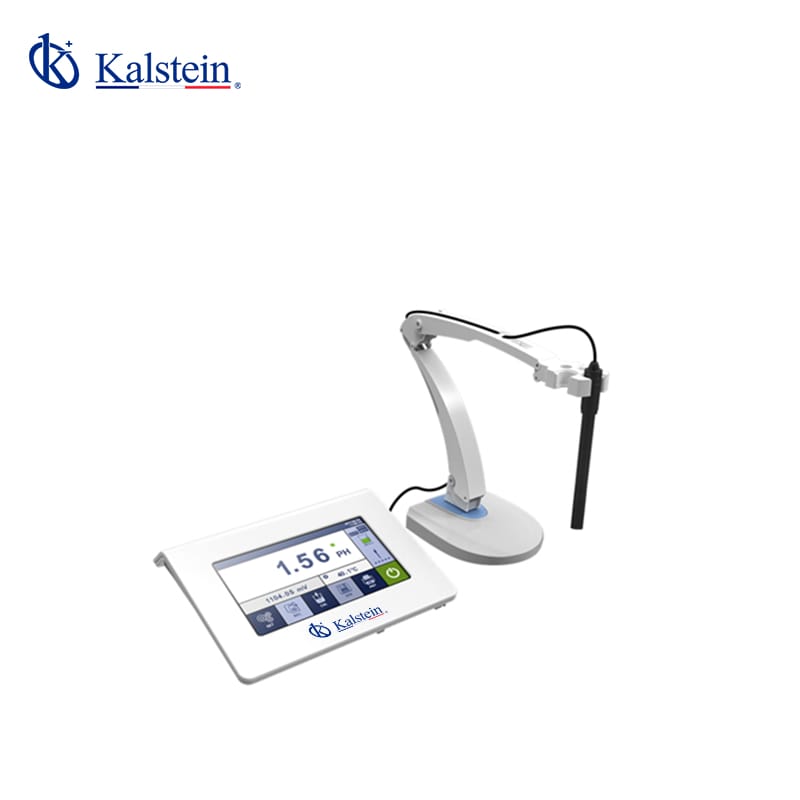In the world of precision instruments, bench conductivity meters are essential for analyzing the ion content in various solutions. Today, we compare two notable products in the market: the YR01830 Benchtop TDS / Conductivity Meter by Kalstein, and the Starter 310C Bench Conductivity Meter by Ohaus. These devices are indispensable for laboratories requiring accuracy in measuring total dissolved solids (TDS) and conductivity.
Kalstein’s YR01830 is recognized for its advanced technology and user-friendly interface, catering to both seasoned professionals and newcomers in the field of laboratory analysis. On the other hand, the Ohaus Starter 310C is known for its robust build and reliable performance, making it a popular choice in many laboratory settings worldwide.
| Specification | YR01830 Benchtop TDS / Conductivity Meter | Starter 310C Bench Conductivity Meter |
|---|---|---|
| Brand | Kalstein | Ohaus |
| Measurement accuracy | High precision | Reliable precision |
| Display | Advanced, easy-to-read display | Standard LCD display |
| User interface | User-friendly, intuitive | Basic user interface |
| Ease of calibration | Automatic calibration option | Manual calibration |
How They Work
The YR01830 Benchtop TDS / Conductivity Meter by Kalstein operates with an advanced digital interface, seamlessly combining precision and ease of use in monitoring TDS and conductivity values. Its sophisticated system is equipped with automatic temperature compensation, ensuring accurate readings across a wide range of conditions. Meanwhile, the Ohaus Starter 310C delivers consistent results, though it requires manual calibration for optimal performance. This manual operation may necessitate a deeper understanding of the process by the user, thus it can sometimes be less practical in fast-paced laboratory environments.
What It’s Used For
The Kalstein YR01830 is specifically engineered for environments that demand precise conductivity and TDS readings, such as water quality testing and in pharmaceutical industries. Its advanced design makes it an ideal choice for researchers who require reliable and exact measurements. Laboratories benefit greatly from its refined accuracy, allowing for detailed analysis and reporting, which can be crucial for ensuring compliance with stringent industry standards.
Types
Conductivity meters generally come in various types, including portable, benchtop, and industrial models. The YR01830 and the Starter 310C both belong to the benchtop category, favored for their stability and suitability in laboratory settings. The benchtop design ensures a stable placement on lab counters, reducing risks of damage from falls or spills. While portable models offer convenience, benchtop models like these are typically more precise and better suited for long-term research projects.
Price in the Market
The market for bench conductivity meters can range significantly, with prices available from a couple of hundreds to several thousand dollars depending on the features, precision level, and brand reputation. Kalstein’s YR01830 generally falls into a competitive price bracket, offering advanced features at a more affordable cost compared to some of its competitors. The Ohaus Starter 310C is priced moderately, reflecting its reliable yet more conventional technology.
Frequently Asked Questions
How accurate are the measurements from the YR01830?
The YR01830 Benchtop TDS / Conductivity Meter by Kalstein is designed to deliver highly accurate measurements, benefiting from modern technology that minimizes user errors.
Is the Ohaus Starter 310C suitable for beginners?
While reliable, the Ohaus Starter 310C requires some familiarity with calibration processes, which may present a learning curve for beginners.
What is TDS and why is it important?
TDS stands for Total Dissolved Solids, indicating the combined content of all inorganic and organic substances in a liquid. Monitoring TDS is critical for water quality assessments.
Advantages and Disadvantages
Kalstein YR01830 Advantages: This model offers automatic calibration and temperature compensation, making it easier to use without sacrificing accuracy. Its user-friendly interface simplifies the workflow, encouraging efficiency in data gathering.
Ohaus Starter 310C Advantages: Known for its robust construction, this meter ensures longevity and consistent performance, albeit requiring manual calibration.
Kalstein YR01830 Disadvantages: While packed with features, it may require initial familiarization to optimize its full potential.
Ohaus Starter 310C Disadvantages: Manual calibration may be cumbersome, especially for users managing multiple tasks simultaneously.
Usage in the Field
The practicality of the YR01830 makes it a favorite in laboratory settings where precision and efficiency are paramount. Its automatic calibration feature saves time and reduces potential manual errors. The Ohaus Starter 310C is a reliable workhorse but may require additional steps in preparation and operation, which may impact productivity in fast-paced environments.
Recommendations
To maximize the usefulness of the Kalstein YR01830, it is recommended to familiarize oneself with the intuitive interface to fully capitalize on its advanced features. Additionally, regular maintenance checks can enhance its longevity and precision. Users of Ohaus’s Starter 310C should follow precise calibration procedures to ensure continued measurement accuracy. For both, keeping the units clean and dry is essential for preserving functionality and accurate readings.
If you are seeking a blend of innovation and quality, you have come to the right place. At Kalstein, we offer the luxury of exploring our exclusive catalog of laboratory equipment. We manufacture each device with a level of excellence. Our intuitive and agile online purchasing channels are designed for your convenience, ensuring the most affordable prices. Do not hesitate any longer, we bring science to life, it is time to become part of our community. https://kalstein.de/product/yr01830-benchtop-tds-conductivity-meter/.

